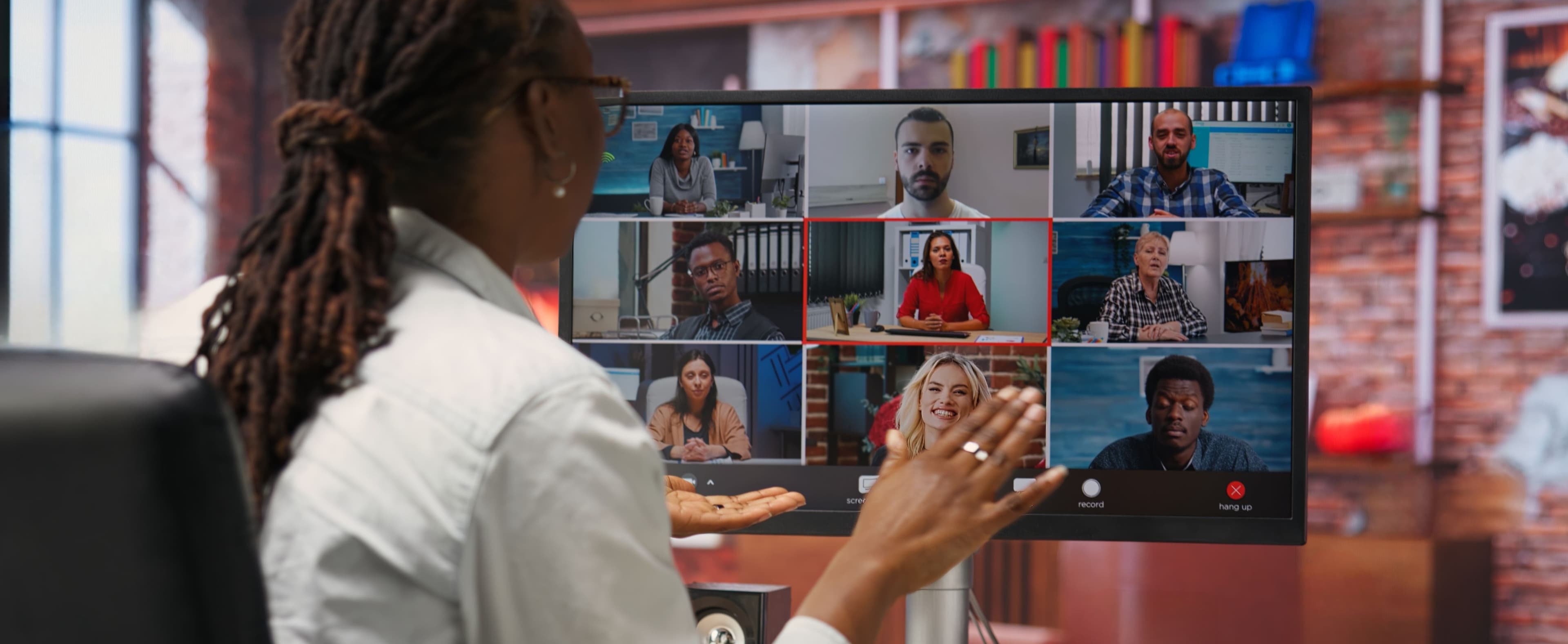Mentoring from Retirement: Experts' Time Donation
29 Sep 2025 . 4-5 minute read
How Retired Professionals Can Give Back to Communities in Need
Retirement is often seen as a time to relax and enjoy the fruits of one's labor. However, for many retired professionals, it can also be a time to give back, share knowledge, and make a lasting impact. With years of experience in fields such as healthcare, engineering, finance, and more, retired professionals have a wealth of expertise to offer communities in need—particularly in the field of education.
As we explored in our recent blog, The Power of Time Donation, small time investments can lead to transformative change in the lives of students and communities. But how do retired professionals fit into this narrative?"
In this blog, we’ll explore how retired professionals can become mentors, support education initiatives, and empower local professionals with valuable guidance—all while using a minimal time commitment that is both rewarding and impactful.
The Power of Mentoring: Why Retired Professionals Are Perfect Mentors
Retired professionals often feel a strong desire to give back to their communities. Mentoring provides the perfect opportunity to do so. With decades of experience, they can help shape the next generation of leaders, professionals, and entrepreneurs. Whether in healthcare, engineering, finance, or any other field, retired professionals have invaluable insights that can help local professionals and students overcome challenges and reach their full potential.
Picture this: A retired doctor, with decades of experience in patient care, dedicates just a few hours each week to mentor young medical professionals in a rural area. The impact of this simple act of sharing knowledge and providing guidance could be monumental for their careers and improve the quality of healthcare in the entire community.
Mentoring doesn’t require a large time commitment, but it can have a lasting effect. Just a few hours a week or even a few hours a month can make a difference in the lives of young professionals. By offering their expertise, retired professionals provide guidance that allows others to avoid common pitfalls and develop skills that will benefit their communities for years to come.
Short-Term Volunteering: Maximizing Impact with Minimal Time
For many retired professionals, committing to long-term volunteer projects can feel overwhelming, especially if they are balancing other responsibilities. However, short-term volunteering can be just as effective. A few hours per week or even a few hours per month can lead to high-impact results, particularly in mentoring or skill-building workshops.
What if a retired engineer, who once worked on large-scale infrastructure projects, dedicated just one hour per week to help young engineers solve real-world problems? That small, consistent time commitment could build the skills and confidence of future engineers, empowering them to tackle complex challenges in their local communities.
By focusing on high-impact, short-term engagements, retired professionals can create meaningful change. Here are some ideas for short-term, impactful volunteering:
• Lead monthly workshops on financial literacy for young adults in the community.
• Offer hour-long mentoring sessions on career development or industry-specific challenges.
• Provide one-time guidance for a local non-profit or business, helping them navigate growth or operational hurdles.
These small but powerful contributions allow retired professionals to continue using their expertise to empower others without a long-term commitment.


How Retired Professionals Can Mentor Local Professionals
Retired professionals have years, if not decades, of experience in their respective fields. This wealth of knowledge can be incredibly valuable to local professionals and emerging leaders. Here’s how they can use their time to mentor others:
• Healthcare: Retired doctors, nurses, and other healthcare professionals can mentor young practitioners, providing guidance on medical practices, patient care, and navigating the challenges of healthcare systems in underserved communities.
• Engineering and Technology: Retired engineers and IT professionals can support local professionals in developing their technical skills, offering insights into innovative practices, and advising on best practices for engineering projects in low-resource settings.
• Finance: Retired finance professionals can assist small business owners, young entrepreneurs, or students by offering mentorship on financial planning, budgeting, and investment strategies.
Stellen Sie sich einen pensionierten Finanzberater vor, der nur wenige Stunden im Monat damit verbringt, eine Gruppe junger Unternehmer in der Verwaltung ihrer Start-up-Finanzen zu unterstützen. Diese Ratschläge könnten den Unterschied zwischen dem Scheitern oder Gedeihen eines Unternehmens ausmachen und positive Auswirkungen auf die gesamte Gemeinschaft haben.
Diese Mentoring-Maßnahmen müssen nicht in Vollzeit erfolgen. Durch gezielte Zeitinvestitionen können Pensionisten langfristige Veränderungen bewirken.
Which Type of Mentor Are You? Understanding Retired Professionals’ Motivations
As a retired professional, you’ve accumulated years of knowledge and experience—now is the perfect time to share it. But how do you decide the best way to contribute? By understanding your unique motivations, you can find the type of volunteering that feels most rewarding and impactful to you. Here’s how you can relate to the different groups and make the most of your mentorship:
Are You a Values-Driven?
If you’re someone who believes in the importance of community and tradition, you might identify with the Values-Driven group. You’ve spent your career honing specific skills and following a clear path, and now you’re ready to give back in a way that feels grounded and meaningful.
You’re leading small-group workshops in your community, where you can provide one-on-one guidance to younger professionals or students eager to learn from your experiences. You might enjoy structured mentorship programs where your input helps shape future leaders in your field. This approach allows you to make a deep, lasting impact without needing to dive into long-term commitments. Your time can be focused on helping others grow, just as you once did.
Are You Achievement-Oriented?
If you’ve always set high expectations for yourself and others, you might identify with the Achievement-Oriented group. For you, the results matter, and you thrive on creating lasting impact. You want to see tangible change and measurable outcomes from your contributions.
You could help young entrepreneurs succeed in their business ventures by offering your expertise in career advancement workshops. Or maybe you prefer consulting where your strategic insights can help a nonprofit or startup reach its next milestone. These high-impact, short-term volunteer opportunities align perfectly with your drive to produce meaningful, measurable results.
Are You Socially-Oriented?
If you’re motivated by a desire to create positive change and make a lasting difference in people’s lives, you might find yourself in the Socially-Oriented group. This group is all about empowering others and using your experience to help transform communities in a meaningful way.
Think about how your mentorship could support youth empowerment programs or initiatives that promote social entrepreneurship. Whether you’re mentoring future leaders in education or providing guidance to young social entrepreneurs, your desire to make the world a better place will shine through in every interaction. Short-term, high-impact engagements will allow you to contribute to the causes that align with your values and passions.
What Kind of Mentor Will You Be?
By reflecting on these different groups, you can better understand where your own motivations lie. Whether you’re drawn to providing steady, structured mentorship, offering high-impact workshops, or fostering social change, there’s a mentoring opportunity that’s just right for you. The key is finding a way to share your skills in a way that feels rewarding and manageable, whether it’s a few hours a week or a few hours a month.

Actionable Tips for Retired Professionals to Get Involved:
• Join local mentorship programs: Many communities offer structured mentorship programs where retired professionals can volunteer their time with minimal commitment.
• Sign up for online mentoring platforms: Retired professionals can offer their expertise digitally, providing mentorship to students and young professionals in underserved regions, offering short-term advice or industry-specific guidance.
• Host skill-building workshops: Retired professionals can organize short-term workshops to teach practical skills such as budgeting, leadership, or industry-specific knowledge.
Making a Lasting Impact with Minimal Time Commitment
The best part about mentoring in retirement is that it can be done on your terms. While some retired professionals may have more time to dedicate, others may want to keep their commitments brief but impactful. Here are some examples of how even a minimal time commitment can make a significant difference:
• Host a one-hour webinar on your area of expertise for young professionals.
• Commit to a monthly mentoring session with a small group of students or professionals in need of guidance.
• Lead a short-term project such as a financial literacy workshop for local businesses.
A Rewarding Opportunity for Retired Professionals
Mentoring is an excellent way for retired professionals to stay engaged, share their knowledge, and make a real difference in their communities. By focusing on short-term, high-impact volunteering and leveraging their lifetime of experience, retired professionals can contribute in meaningful ways without requiring long-term commitments. Whether it’s through mentoring, workshops, or online tutoring, retired professionals can use their time and expertise to create lasting change. Even small contributions can have a transformational impact on individuals, communities, and the education sector.
Ready to make a difference? Start mentoring today and see the long-lasting impact your expertise can have on future generations. Visit Fund for Education Austria to learn more about how you can contribute to education and mentorship programs that need your expertise.
Recommended Blogs
2025-11-05 . 2 minute read
2025-09-04 . 4-5 minute read
2025-08-18 . 5 minute read
